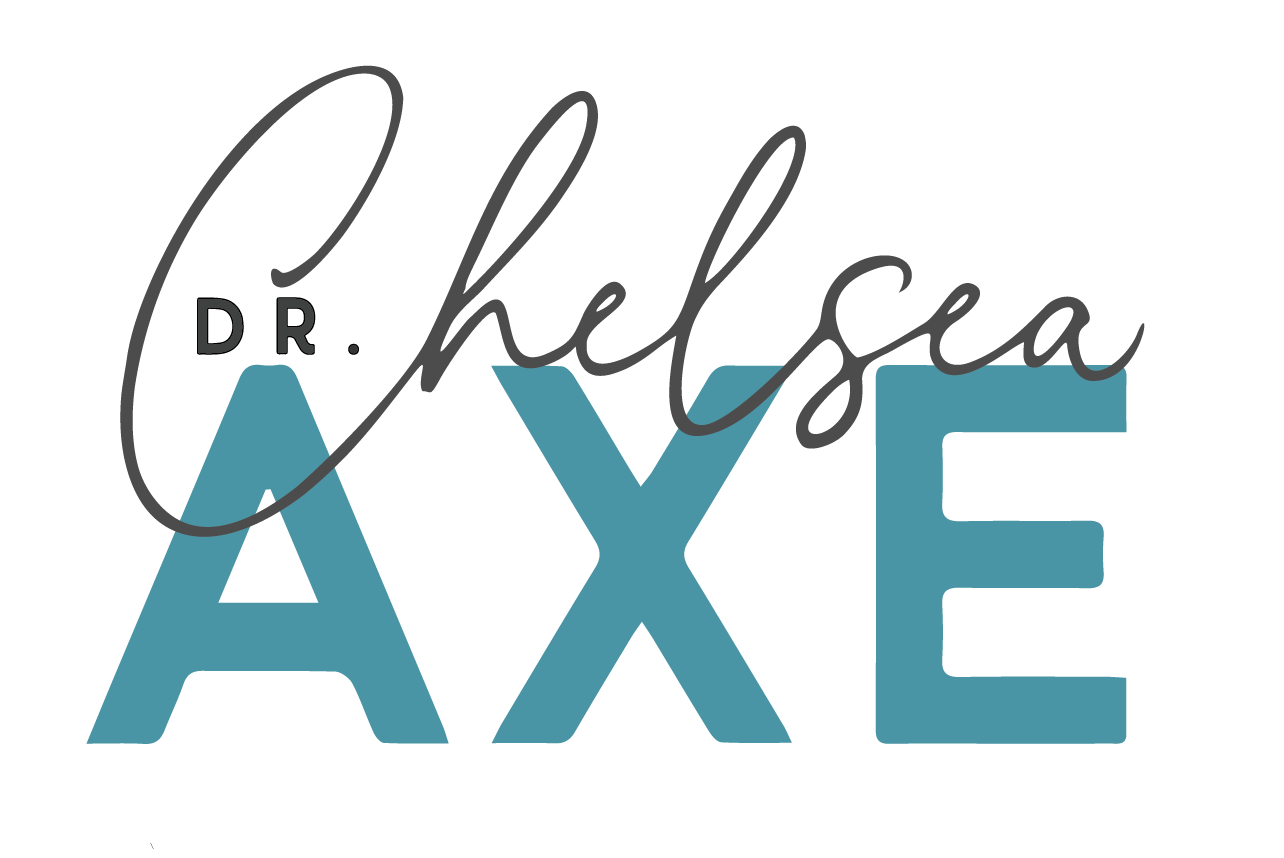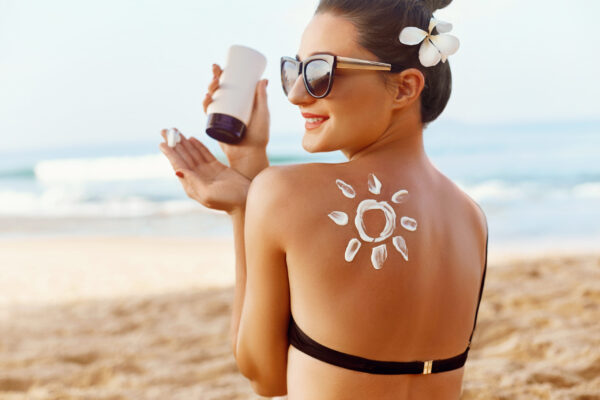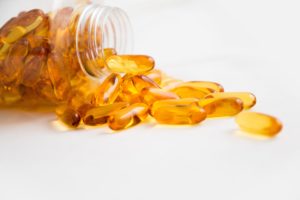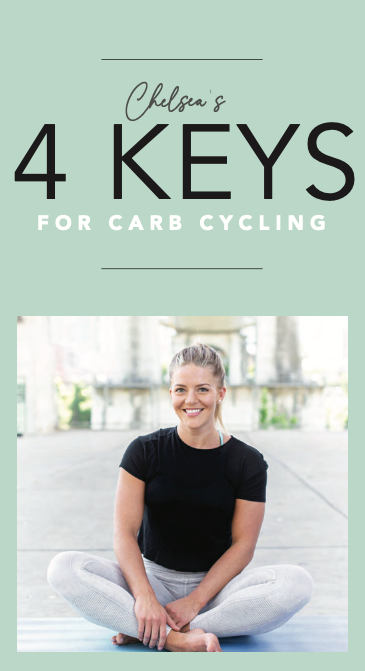Our family LOVES the beach and spending time outdoors. Being in the sun a lot has led me to become more mindful of how I take care of my skin. Each year, I inevitably get asked the question, “What natural sunscreen works best?” So I’ve spent a lot of time researching the best clean sunscreen options available.
Wearing sunscreen can help to reduce the risk of skin cancer and keep your skin young and vibrant. However, many popular sunscreens contain chemical UV blockers and toxic ingredients.
First let me say, the sun is not your enemy. It’s a vital source of vitamin D. A 2015 study found that more than 70% of breastfed babies were deficient in vitamin D at one month old. You need time in the sun without sunscreen. 10-20 minutes of sun a day on your skin is good for you – ideally, before 10am or after 4pm (when the sun is not at its strongest!) However, sometimes being in the sun for long periods of time cannot be avoided and we need to be smart about it.
So how do you choose a natural sunscreen that’s right for you? Read below for what chemicals to steer clear of and which brands I trust the most.
Ingredients to Avoid in Sunscreen
When shopping for sunscreen, always make sure to scan the ingredients label. Some brands label their products as “natural” but still contain questionable ingredients. Next time you’re shopping for sunscreen, check the ingredients list on the back. Here’s what to avoid.
Oxybenzone
Used in so-called “natural” sunscreens, this chemical has been detected in breast milk, urine, and blood. It’s also been linked to endometriosis and can lower sperm count and testosterone levels. This toxic chemical also triggers allergic reactions in some people.
In 2008, EWG called on the FDA to investigate the safety of oxybenzone use in sunscreen, because of mounting evidence that the chemical readily penetrates the skin and could potentially disrupt the human hormone system.
The test results showed that children may be more vulnerable to harm from oxybenzone than adults “because of the potential for higher [skin] absorption.”
Vitamin A
Too much vitamin A increases sun sensitivity and can be linked to liver damage, brittle nails, weak bones, hair loss, among other things. Too much Retinol can also be toxic. If you’re pregnant or breastfeeding, you want to avoid any product that contains Vitamin A (and it’s many other forms/names, ex. retinol).
Other Toxic Ingredients to Avoid In Sunscreen
Here is a list of a few other chemicals to steer clear of:
- Avobenzone
- Homosalate
- Octinoxate
- Octisalate
- Octocrylene
- Cinoxate
- Dioxybenzone
- Ensulizole
- Meradimate
- Padimate O
- Sulisobenzone
How Much SPF Do I Need?
Many people think the higher the SPF, the higher the level of protection, but that’s not necessarily true. The FDA is concerned that claims of high SPF can give users a false sense of skin protection, leading to sunburn and overexposure to UVA rays.
Are Spray Sunscreens Safe?
Sunscreen sprays are more convenient, which is a pro. But the big con of using this type of sunscreen? They contain titanium dioxide, which, when inhaled in large amounts, has been linked to cancer.
The EWG states, “In pilot testing, the agency found that three of 14 [sunscreen] sprays would not meet its proposed standard but did not say which products consumers should avoid. EWG recommends that consumers avoid all spray and powder sunscreen products.”
In 2020, the FDA finally made some much-needed updates to its sunscreen guidelines. Thankfully, they are starting to implement the EWG’s recommended changes.
What’s In Natural Sunscreen?
The EWG suggests using mineral sunscreens. This type of sunscreen offers protection without absorbing harmful chemicals into your skin. Mineral sunscreens–also called sunblock–contain the active ingredients titanium dioxide or zinc oxide. They work to protect the skin by deflecting the sun’s rays.
What are the need-to-knows about the two active ingredients most commonly found in natural sunscreens?
Titanium dioxide
Titanium dioxide is often a primary ingredient in sunscreen because it works well as a UV filter. The particles of titanium dioxide don’t absorb into your skin, but rather form a thin “shield” layer on the top of your skin. When the sun hits the titanium dioxide, it scatters the suns rays away from your skin. Since the sun’s rays never reach your skin, you’re protected.
Zinc Oxide
Zinc oxide is commonly used to treat diaper rash, minor burns, and skin irritation. It also works well as a natural sun barrier. Much like titanium dioxide, it protects the skin from sun exposure, moisture, and other potential irritants.
Top Natural Sunscreens for 2020
So how do you choose the best natural sunscreen? As I often mention in my articles, just because a product claims it is good for you doesn’t mean it is.
To find sunscreens you can trust, check out the EWG’s list of best natural sunscreen for 2020. The list includes the safest sunscreens for beach, sport, and water. It also includes great natural sunscreen options for kids and babies.
Disclosure: Thank you for reading and sharing my content! The suggested products are ones that my family and I would also use, but I may collect a small commission on purchases made through some of the affiliate links on this page.
My Favorite Natural Sunscreens
These are the sunscreens I personally love using. (Note: You may want to reapply more often when you’re using natural sunblock.)
- Suntegrity SPF 30 Sunblock
- Beauty Counter SPF 30 Sunblock
- Badger SPF 30 Baby Sunblock
Remember, when in doubt, you can always check products on sites like the EWG, or by using the “Think Dirty” app.
What questions do you have about your sunscreen routine? Leave them in the comments below.






What do u personally like to use for skincare products? Looking for a good skincare line to use.
Hello, I want to subscribe for this blog to get hottest updates, thus where can i do it please help out. Wenona Creigh Stander
Some really nice and useful info on this website, too I conceive the design and style has got excellent features.